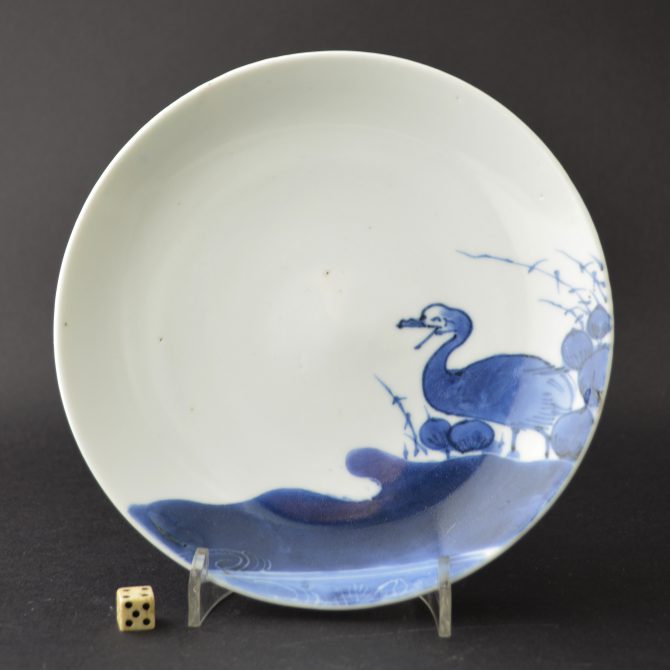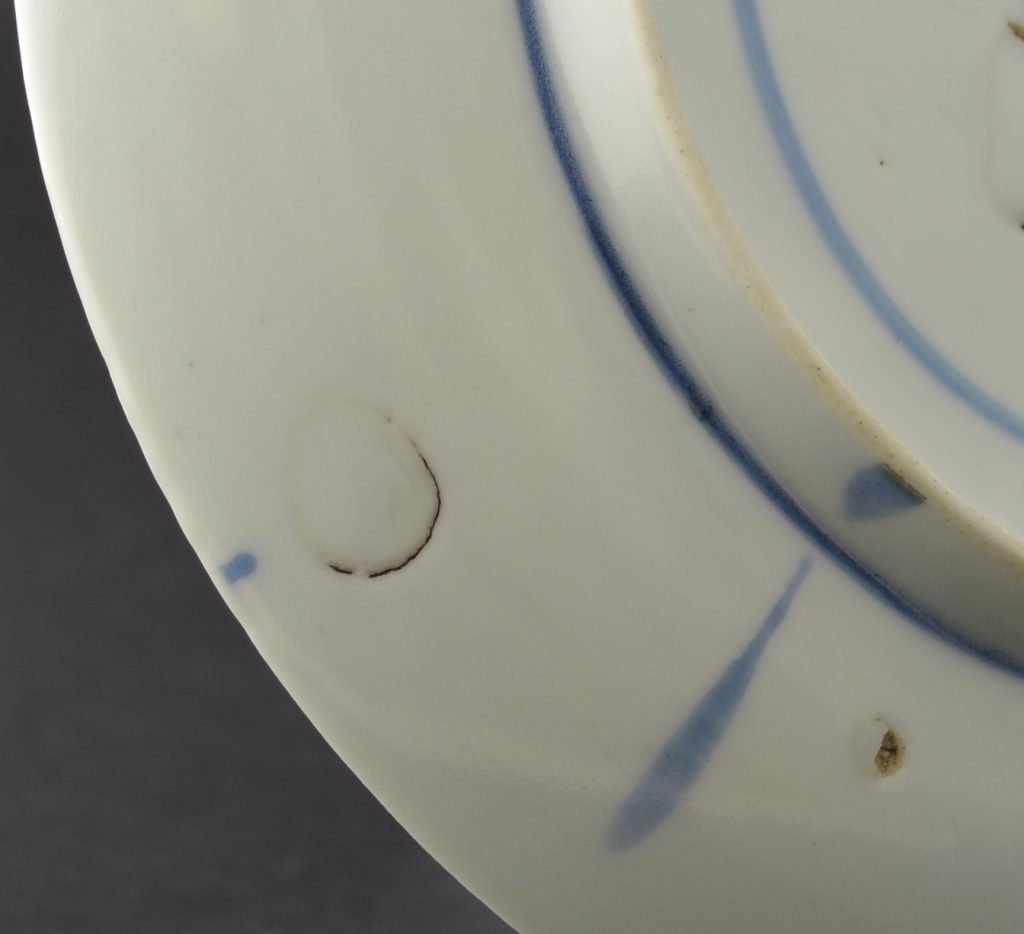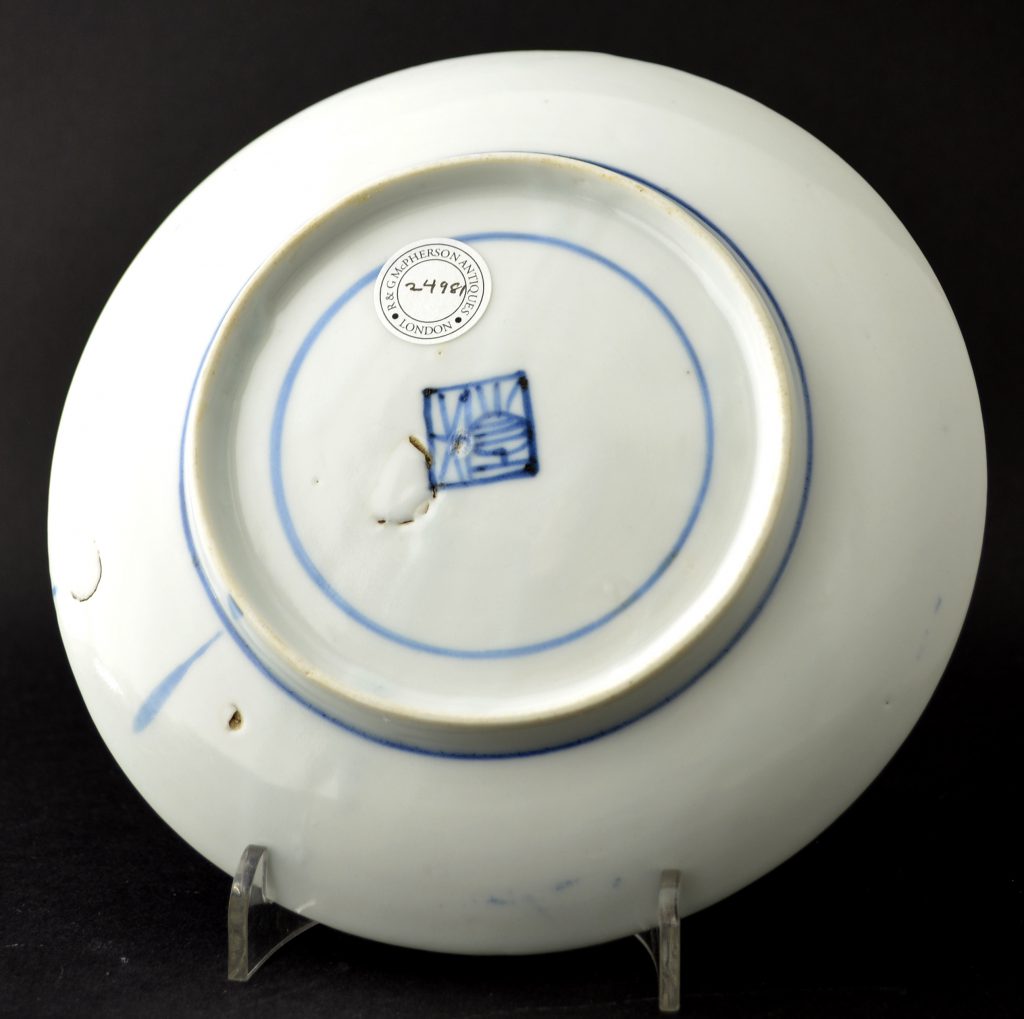
A Small 17th Century Japanese Porcelain Dish Decorated in Blue and White with Wax Resist
A 17th century blue and white Japanese porcelain dish, Arita kilns c.1655 – 1670. The saucer shaped dish depicts a goose on the waters edge using cobalt blue and a wax resist technique called Sumihajiki. The base with a seal mark.
- Condition
- Very good, some firing faults to the back.
- Size
- Diameter : 14.9 cm (5 3/4 inches)
- Provenance
- From a Private English Collection of 17th and 18th Century Chinese and Japanese Porcelain.
- Stock number
- 24981
Information
Sumihajiki :
This type of ceramic decoration appears in Japan just after the middle of the 17th century, although its origins are much earlier. The effect created is that of painted white lines cutting through blue, this is achieved using a wax resist type paint called `sumi` which protects the white porcelain from the cobalt blue over-painting. The `sumi` is burnt off during the firing to leaving white lines to contrast against the blue.

